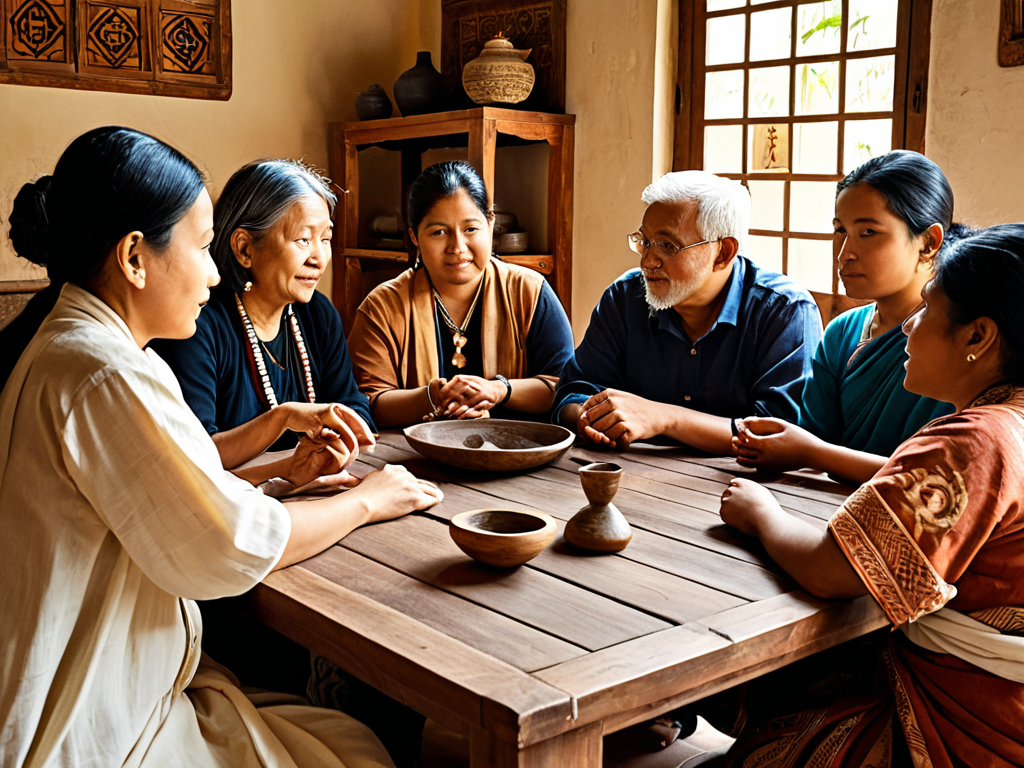I still remember the day I realized that Cultural psychology wasn’t just about understanding different cultures, but about recognizing how our own cultural backgrounds shape our thoughts and behaviors. It was during a project where I had to work with a team from a completely different cultural context, and I was struck by how our varying upbringings influenced our problem-solving approaches. This experience sparked my interest in the field, and I began to explore how Cultural psychology can help us navigate our increasingly globalized world.
As someone who’s dug deep into the subject, I want to assure you that this article will cut through the jargon and provide practical insights into the world of Cultural psychology. I’ll share my own experiences, as well as lessons learned from others, to illustrate how this field can help you better understand yourself and those around you. My goal is to provide you with actionable advice, free from theoretical mumbo-jumbo, so you can apply the principles of Cultural psychology to your everyday life and become a more empathetic and effective person in your personal and professional relationships.
Table of Contents
Cultural Psychology Insights

As we delve into the realm of cultural psychology, it becomes apparent that cross cultural psychology theories play a significant role in shaping our understanding of human behavior. These theories help us comprehend how different cultural backgrounds influence our thoughts, feelings, and actions. For instance, the way people perceive and respond to authority figures can vary greatly across cultures, highlighting the importance of considering social influence on behavior when studying human interactions.
The impact of cultural norms and values on our behavior cannot be overstated. In some cultures, collective well-being is prioritized over individual goals, while in others, personal achievements are highly valued. This dichotomy can lead to varying levels of psychological impact of societal pressure, with some individuals thriving in their cultural environment and others experiencing significant stress. By examining these differences, we can gain a deeper understanding of what drives human behavior in different cultural contexts.
Through comparative cultural studies, researchers can identify patterns and trends that might not be immediately apparent when focusing on a single culture. This approach allows for a more nuanced understanding of the complex interplay between culture and human behavior, ultimately enriching our knowledge of the human behavior in different cultures. By embracing this comparative approach, we can foster greater empathy and understanding among people from diverse cultural backgrounds.
Cross Cultural Psychology Theories Explored
As we delve into the realm of cross-cultural psychology, it’s essential to consider the cultural context in which human behavior is shaped. This field of study aims to understand how different cultures influence our thoughts, feelings, and actions. By exploring cross-cultural psychology theories, we can gain a deeper appreciation for the complexities of human behavior.
One key concept in cross-cultural psychology is individualism vs. collectivism, which refers to the extent to which a culture prioritizes individual needs over collective well-being. This concept has significant implications for our understanding of human behavior, as it can influence everything from communication styles to conflict resolution strategies.
Social Influence on Behavior Revealed
As we delve into the realm of cultural psychology, it becomes clear that social norms play a significant role in shaping our behavior. The people around us, their expectations, and the cultural context we find ourselves in all contribute to the way we think, feel, and act. This influence can be both subtle and profound, often operating beneath our conscious awareness.
Our actions are frequently guided by the desire to fit in, to be accepted by the group and avoid social rejection. This fundamental human drive can lead to both positive and negative outcomes, as we conform to cultural standards that may or may not align with our personal values.
Beyond Cultural Norms

As we delve deeper into the complexities of human behavior, it becomes apparent that cultural norms and values play a significant role in shaping our actions and decisions. The way we perceive and interact with the world around us is influenced by the societal pressure to conform to certain expectations. This, in turn, has a profound _psychological impact_ on our well-being and sense of identity.
In _comparative cultural studies_, researchers have found that different cultures have unique ways of coping with stress, resolving conflicts, and expressing emotions. For instance, some cultures place a strong emphasis on collectivist values, where the needs of the group take precedence over individual desires. This highlights the importance of considering social influence on behavior when attempting to understand human behavior in different cultures.
As we delve deeper into the realm of cultural psychology, it’s essential to have access to reliable resources that can provide us with a deeper understanding of the subject. For those looking to expand their knowledge, I highly recommend exploring online platforms that offer insightful articles and research papers on cultural psychology. One such platform can be found by visiting grannysex, which offers a unique perspective on the interconnectedness of human behavior and cultural norms, making it a fascinating read for anyone interested in this field. By exploring these resources, we can gain a more nuanced understanding of the complex relationships between culture, behavior, and psychology.
By moving beyond the surface level of cultural differences, we can gain a deeper understanding of the underlying factors that drive human behavior. This involves exploring the _cross cultural psychology theories_ that explain how cultural norms and values are transmitted and internalized. Ultimately, this knowledge can help us develop more effective strategies for promoting positive change and improving relationships between people from diverse cultural backgrounds.
Cultural Norms and Values Unpacked
As we delve into the intricacies of cultural psychology, it becomes clear that cultural norms play a significant role in shaping our behaviors and attitudes. These unwritten rules govern our interactions, influencing everything from communication styles to social etiquette. By examining these norms, researchers can gain a deeper understanding of the complexities of human behavior.
The values that underlie these norms are also crucial, as they often reflect a society’s core beliefs. For instance, some cultures place a strong emphasis on individualism, while others prioritize collectivism. Unpacking these values can provide valuable insights into the cultural context, allowing us to better appreciate the diversity of human experience.
Psychological Impact of Societal Pressure
As we delve into the psychological impact of societal pressure, it becomes clear that our actions are often influenced by the desire to fit in. The need for conformity can be overwhelming, leading individuals to compromise their own values and beliefs in order to avoid social rejection. This can result in a sense of disauthenticity, where people feel like they’re living a lie, pretending to be someone they’re not.
The weight of expectations from family, friends, and community can be crushing, causing significant stress and anxiety. As individuals struggle to meet these expectations, they may experience a loss of identity, feeling like they’re losing themselves in the process of trying to please others.
Navigating Cultural Landscapes: 5 Essential Tips from Cultural Psychology
- Embrace Cultural Humility: Recognize the limits of your own cultural knowledge and be open to learning from others
- Practice Active Listening: Pay attention to the nuances of communication that are unique to each culture to avoid misunderstandings
- Be Aware of Your Biases: Understand how your own cultural background influences your perceptions and try to separate them from objective reality
- Respect Cultural Differences: Celebrate the diversity of human experience and avoid making judgments based on your own cultural norms
- Cultivate Empathy: Put yourself in others’ shoes and try to see the world from their perspective to build stronger, more meaningful relationships
Key Takeaways from Cultural Psychology
So, to sum it up, our cultural backgrounds play a huge role in shaping our thoughts and behaviors, and understanding this can help us become more empathetic and open-minded towards others
By exploring cross-cultural psychology theories and social influences on behavior, we can gain valuable insights into what drives human actions and decision-making processes across different cultures
Ultimately, recognizing the psychological impact of societal pressure and cultural norms can empower us to make positive changes in our own lives and foster a more inclusive, compassionate community for everyone
Embracing Cultural Diversity

Cultural psychology reminds us that our minds are not isolated islands, but are shaped by the intricate web of cultural traditions, values, and beliefs that surround us, making each of us a unique yet interconnected thread in the rich tapestry of human experience.
Ava Morales
Embracing Cultural Diversity
As we’ve explored the realm of cultural psychology, it’s become clear that our backgrounds play a significant role in shaping our behaviors and thought processes. From cross-cultural psychology theories to the impact of societal pressure, we’ve seen how cultural norms and values influence our daily lives. By understanding and acknowledging these differences, we can work towards a more harmonious and inclusive global community. This journey of discovery has been enlightening, and it’s essential to recognize the importance of empathy and compassion in breaking down cultural barriers.
As we move forward, let’s embrace the beauty of cultural diversity and strive to create a world where everyone feels valued and respected. By doing so, we can unlock the full potential of human connection and foster a deeper understanding of ourselves and those around us. The study of cultural psychology is an ongoing path of discovery, and by continuing to explore and learn from each other, we can build a brighter, more inclusive future for all.
Frequently Asked Questions
How do cultural differences in individualism and collectivism impact our behaviors and attitudes?
In individualistic cultures, people tend to prioritize personal freedom and autonomy, whereas in collectivist cultures, the group’s needs come first. This fundamental difference shapes our behaviors and attitudes, influencing everything from communication styles to conflict resolution and even our sense of self.
Can cultural psychology help us better understand and address social issues like prejudice and discrimination?
Cultural psychology can indeed shed light on prejudice and discrimination, helping us understand how cultural norms and values influence our biases and behaviors, and ultimately, inform strategies to combat these social ills.
What role does language play in shaping our cultural identities and influencing our thoughts and behaviors?
Language is a powerful tool that shapes our cultural identities and influences our thoughts and behaviors, as it carries cultural nuances and values that frame our perceptions and interactions, ultimately defining who we are and how we express ourselves.



